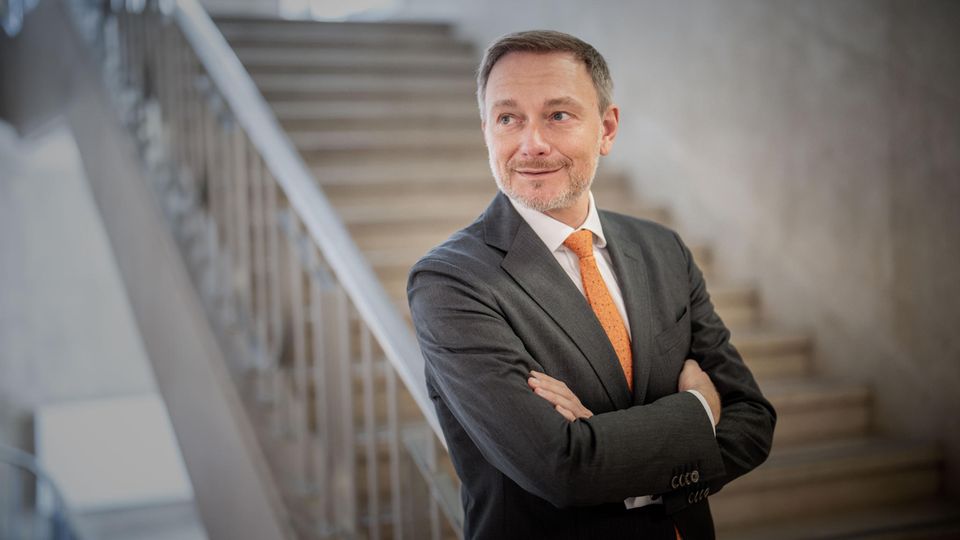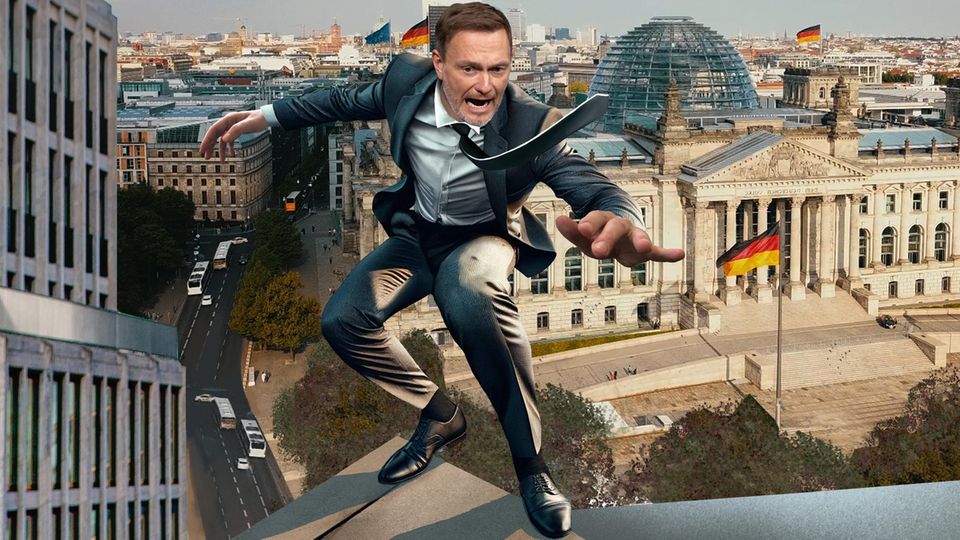Actually, the FDP leader was always good for surprises. Now Finance Minister Christian Lindner is saying the same thing everywhere – even in Washington. Not a bad strategy.
Politics is always entertainment. That may be a truism, but perhaps we sometimes need to be reminded of the certainties that the turning point has not yet removed. So: Politics is a show, a production, and yes, in the best case scenario – surprise!
Who would know that better than Christian Lindner? The man who led the FDP out of obscurity with the tricks of an advertising professional. Who perfected his one-man show until he could no longer hear the accusation that the FDP was just a one-man show. Someone who has been a regular since he was a student: “Problems are just thorny opportunities.”
So this Christian Lindner – finance minister of a traffic light coalition that is in its own way quite entertaining for two and a half years – is currently boring his audience. Yes, Lindner is bored. He repeats himself. This is the new communication strategy in the budget dispute with the SPD and the Greens. And probably exactly the right one. It even works abroad, multilingually.
IMF meeting – and the crisis travels with us
Tuesday evening, Washington, District of Columbia. The government plane landed at Dulles International Airport at 10:40 p.m. local time. Lindner will spend two and a half days in the US capital, take part in the spring meeting of the International Monetary Fund (IMF) and meet counterparts from all over the world. He also wants to speak to Republican and Democratic members of Congress.
The classic story of such ministerial trips to the IMF, G20 or G7 goes like this: Lindner flies to Washington – and the crisis flies with him. This twist was often the case with previous federal governments. And it works even better in traffic lights because this coalition knows no time without a crisis. Sometimes this spin is due to the laziness of journalists. Why concern yourself with the world’s crises when basic child security at home is shaky?
For Lindner, however, there is currently no film that fits better than the classic. So back to Germany for a moment.
Tuesday lunchtime, Berlin-Mitte. A few hours before departure for the USA, Lindner stands on a podium in the atrium of the FDP headquarters. His party has invited people to an economic congress. Bosses of DAX companies, family business owners and union bosses came. Everyone agrees here: the German economy has a problem. The traffic light must deliver reforms.
“We don’t believe that the merchant’s complaint is a lie,” says Lindner. The Chancellor recently complained about the merchants’ complaints. Olaf Scholz thinks that the economic situation is being talked about badly. Lindner says: “I occasionally have the impression that the urgency is not clear to everyone.”
The triad of “economic turnaround”
The finance minister has a plan. He wants to save the country from recession with an “economic turnaround”. And get his FDP back on the path to success. If the economy is doing well, the liberals are doing well. It could be that simple.
But it is not yet clear whether this “economic turnaround” is coming. Negotiations with the SPD and the Greens are ongoing, and the 2025 budget is being drawn up at the same time. They want to reach an agreement by the beginning of July. But what for?
At his party’s economic congress, Lindner repeated the triad with which he is currently on tour. “Economic turnaround” means: reforming the labor market, reducing bureaucracy, reducing taxes. In location rankings, Germany has fallen from 6th to 22nd place in ten years. The last corporate tax reform took place in 2008.
Christian Lindner doesn’t need an IMF meeting to gather arguments for his proposals.
“In the middle of the river”: Christian Lindner quotes Lincoln
Wednesday morning, Washington. Lindner sits on a podium at the “World Economy Summit,” another economic congress. “Germany needs a momentum for structural reforms,” he says. Lindner’s English sounds like Werri Dschörmän. But the technical terms are correct. Structural reforms, of course. Then comes the triad: labor market, reduction in bureaucracy, taxes. This is followed by a decline in the location ranking. And when was the last corporate tax reform? Correct, 2008.
Maybe the only thing that helps with all the arguments at traffic lights is absolute expectability: There is magic in every routine – and maybe even a new beginning. Political messages only catch on when they get down the throat of the ambassador. Stay on message, first!
At a time when business leaders complain about political uncertainty, predictability is probably the only song the businessman wants to hear.
Thursday morning, still Washington. In the basement of the Fairmont Hotel, Lindner invited Bundesbank President Joachim Nagel to a press conference. They start with the world crises, inflation, interest rates. “We are focusing on structural reforms,” says Lindner at some point, logically. The triad follows.
A little later, when it comes to the next term of office of the IMF President, Lindner quotes Abraham Lincoln: “You shouldn’t change horses in the middle of the river.” His current performances can hardly be described more beautifully. Although this sentence again came spontaneously – yes, almost: surprisingly.



